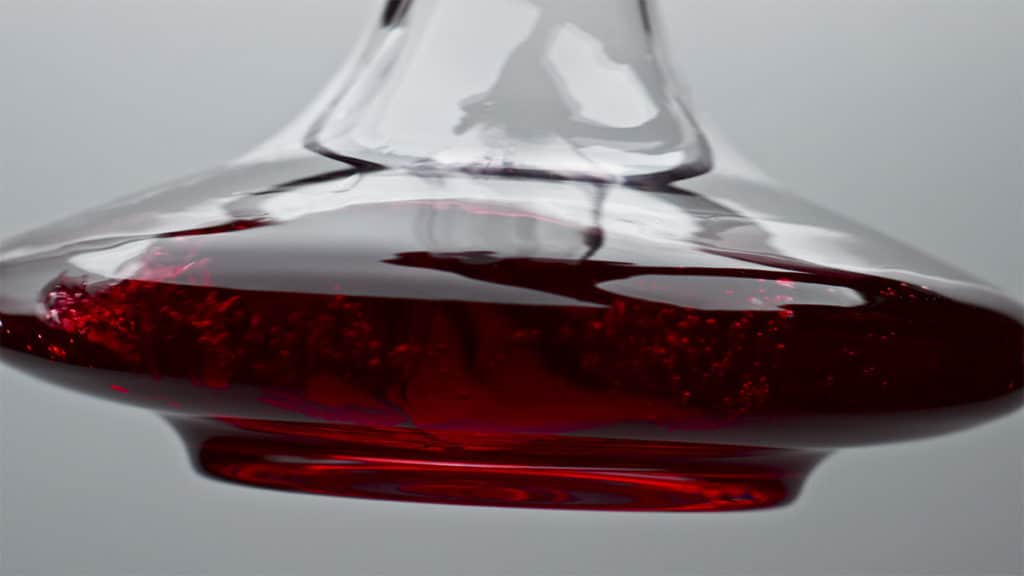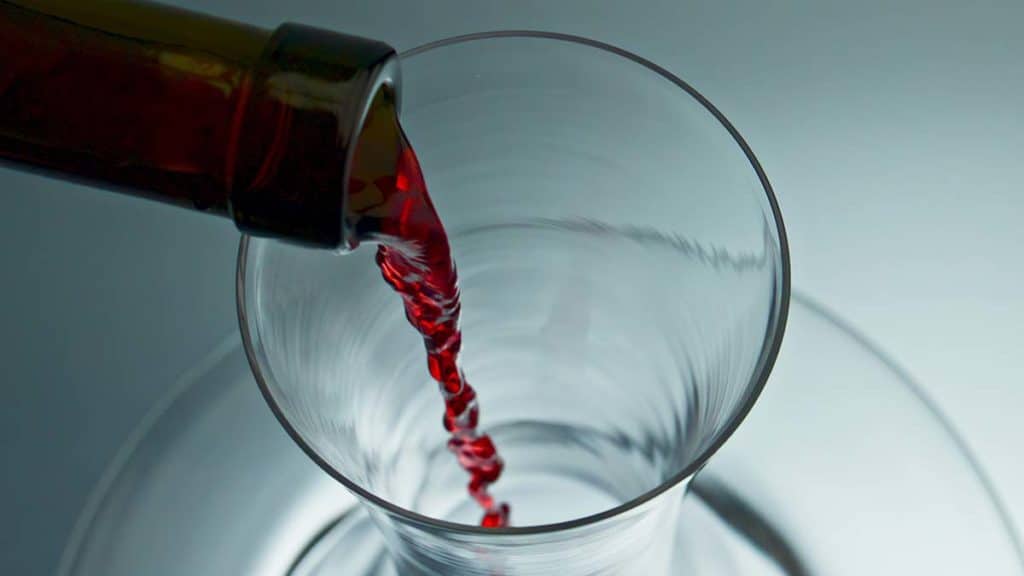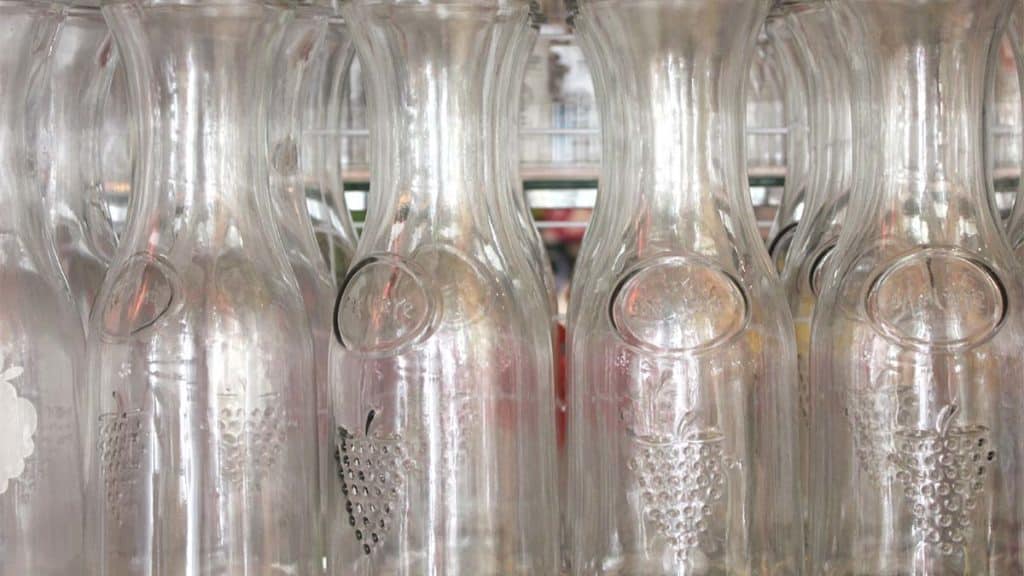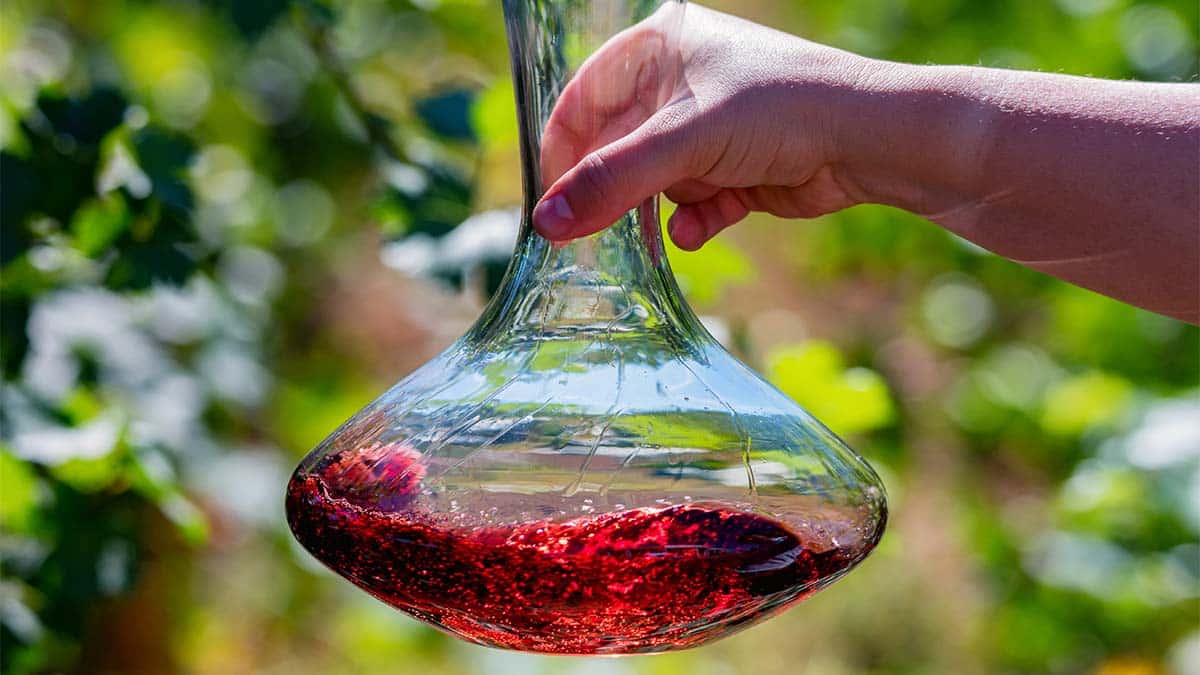Welcome to “Ask the Winemaker,” our new series where Paul and the Prophet’s Rock team give honest answers to the questions we hear most from club members, customers, and winery visitors. Each month, we’ll tackle a different topic related to wine, going beyond the common answer to give you no-nonsense advice that anyone can put into practice.
Decanting Wine: Why, How and Hacks …
Why, when you have paid money for a perfectly reputable bottle of wine, should you have to find another vessel and then empty out said bottle into a second container?! Welcome to the mystery world of decanting wine, a land full sales malarkey and other nonsense.
TL;DR: Is decanting a special bottle of wine important? Yes. Should you buy an expensive decanter? Absolutely not.
Wine is an amazing living beverage, ageing and changing in the bottle after it is made. Over time, it becomes more complex and interesting, with ever more stories to tell: where it is from, the season it lived on the vine, and the people who made it. There is not much left in modern life that connects us so directly to the land, history, a full year of weather, and the people who farm it.
That is a long way of saying, let’s respect the efforts of the wine growers, and let’s experience this message in a bottle in the best possible light.
Getting down to business. There are two reasons to decant a wine, and they can be either, or both. Number one, sediment. Number two, making the wine taste the best that it can be, this is about aeration and time.

Decanting for sediment
Older wines accumulate sediment over time. Basically, the colouring pigment, acidity, or remnants of fermentation (including young unfiltered wine) can become unstable and ‘fall out’ of the wine forming a totally harmless sediment. This is an easy problem to solve: sediment is heavy, stand the bottle upright on the day of service to let all the harmless ‘bits’ fall to the bottom of the bottle. Then very gently pour (decant) the wine into another vessel, watching for the cloudy haze at the end of the bottle. Then, presto, you have a clear wine to enjoy.

Decanting for aeration and time
The second element to decanting is to give the wine some air and time to open up. Imagine if you had been cooped up in a tiny airless room, alone, for ages, and then finally someone let you out. Would you be ready to deal with people and have a conversation? Probably not before getting your bearings, and a lot of fresh air.
Fine wine is the same. You’ve held it for years, and it will need some time and air to open up and tell you its story. That is the key equation of decanting, Time + Air = The Best Outcome for the Wine. How much time and air depends on the wine and the decanter.
The first thing to do when you open that bottle is to taste the wine and gauge what state it is in. An old frail wine will need the sediment removed but will not need much time or air to open up and be ready to drink. In fact, it may start to oxidise and fade, so decanting can be overdone if you are not careful with old wine. A younger or more robust wine will need time and air – the amount of time will depend on your decanter and how much surface area it has. For example, pouring the same wine into a huge bucket will give the wine loads of air and will need less time to open up. Pouring the wine into a small glass decanter will require more time to get to the same point. How do you tell? That’s the fun part, taste the wine along the way and decide when it’s at its best.

About that decanter
Anything glass that holds water and is easy to pour without a tablecloth disaster is a great decanter. Do not spend big money. In my home, I have ‘water’ jugs, vases, kitchen measuring jugs , and various other rescues from the recycle centre – they all work, just remember the equation of “time + air = the best wine.” The equation hinges on the wine, (how much air does it need) and the decanter (how much air is it getting).
Many of us have had the experience where the end of a bottle tastes amazing and much better than first taste. Most of the time that is because the wine has had more air and ‘opened up’, so why not have that experience right from the first glass? Decanting doesn’t need to be expensive, and your taste buds are your own best guide.
Do you have a question for Paul? Let us know! Send an email or message us on your favourite social media. Don’t forget to subscribe for all the latest from Prophet’s Rock!
